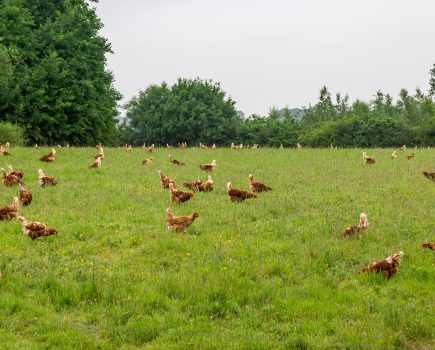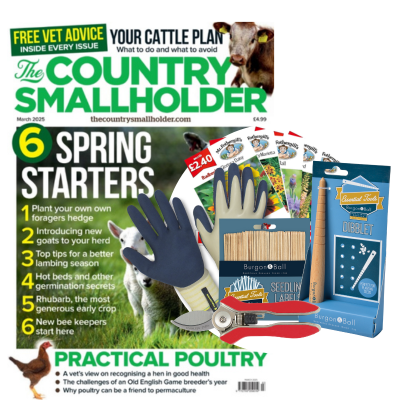Gilly Filsner and Richard Stott started out with two hens …. and now have 200! They also show their birds and use their eggs to make delicious cakes … and even special bread
Six years ago, Gilly Filsner and Richard Stott thought it would be nice to have a regular supply of fresh eggs, so went out and got a couple of chickens. They named them Babs and Ginger after the characters in the film Chicken Run.
Now, Gilly and Richard are into chickens big time. They have around 200 birds in their garden in Long Buckby, a small town in Northamptonshire, have about 40 eggs a day, and think nothing of giving one of their flock a shampoo, blow-dry and a chicken-style pedicure before it goes for judging in a poultry show. “You get addicted to the chickens,” said Gilly ruefully.
Gilly, 47, and Richard, 48, had both worked in management in London, and moved away in search of ‘the good life’. It looks like they have found it.
Richard is now on the committee of the Northampton and District Poultry Club, and Gilly has become an enthusiastic baker of bread and cakes. Although she admits to not having been a keen cook previously, once the hens started producing she soon got into the swing of baking in a bid to keep pace with the supply of eggs. She tries to use eggs wherever she can, even baking a bread dough which includes eggs; it is a Jewish style of loaf called a challah, which is plaited in a distinctive pattern and finished with sesame or poppy seeds.
Like all back garden henkeepers, they love their own eggs. “The eggs from chickens you keep in your own garden are so different from the ones bought in a supermarket, and you get them fresh every day,” said Gilly.“Your white will be firm and tall; when you poach a new laid egg it will hold its shape.”
Richard recalls the first time he fried an egg produced by one of his own chickens. It was a “taste explosion!’ he said.
Their interest soon went beyond just the eggs, and they started buying more birds and even fertilised eggs for their broody chickens to hatch. They take part in poultry shows, but seem to get as much enjoyment from looking after the more needy hens as they do from the show birds.
One of their birds, called Serendipity, failed to put on weight when she was young and they discovered she was blind and so could not see the food. They had to hand rear her, but she has grown into a thriving bird. Gilly said: “Eventually, she figured out how to find food. She knows her name and she comes when you call her.”
They have settled on keeping mainly Orpingtons. Gilly explained that pure breeds may produce fewer eggs than the hybrids, but they are full of character and, once you have a number of chickens, you will not have a shortage of eggs; the problem is more likely to be having too many.
They recommend anyone who is purely interested in a good supply of eggs to get a hybrid, but always to make sure they have more than one bird because they are very sociable. Gilly said: “Once you get to know them, they are so sweet. They have different personalities.” Some of the birds answer to their names, and all of them know when it should be time for them to get some grain, gathering impatiently if Richard is a few minutes late coming up with the goods.
For anyone starting out, they recommend finding out as much as possible about the different breeds beforehand. Gilly said: “If you do your research, you can find a chicken to suit you. Not all chickens like a lot of space.”
Joining a poultry club is also very useful, Richard said: “You will get to know people in the area who can advise you, and it’s a good support line if you have got a problem.”
Gilly said: “The other thing about chickens is they are just wonderful creatures. How anybody who had ever met a chicken could think its okay to keep them in a tiny little cage I don’t know.”







